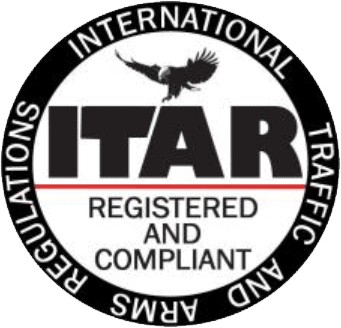Plastic injection molding is a versatile, fast, and affordable way to produce high-quality, custom components. Its compatibility with numerous medical-grade polymers and capabilities for producing high volumes of durable, precision parts make injection molding an ideal fit for the healthcare industry and medical manufacturing.
Advantages of Medical Injection Molding
The injection molding process can generate a wide variety of medical parts and devices uniformly and efficiently. The many advantages that this process offers the healthcare sector include:
- Durability. Medical-grade plastics are resistant to abrasion, impact, breakage, moisture, chemicals, sterilization, and other environmental conditions. Injection-molded parts can withstand the rigors of medical applications for optimal part longevity.
- Tight tolerances. Given the critical nature of medical applications, and the fact that injection-molded components are often part of bigger assemblies, parts with tight tolerances are a necessity in this sector. This precision helps parts fit together as expected.
- Versatility. An extensive array of plastics are compatible with plastic injection molding, allowing you to meet virtually any customer requirement for grade, performance, temperature resistance, biocompatibility, appearance, and budget. Also, injection molding gives you the flexibility to generate parts in a variety of sizes and configurations.
- Repeatability. Injection molding is also beneficial for its repeatability. The process can generate identical parts despite its high speeds and production volumes.
- Mass production and time savings. Injection molding is well-suited to mass production. Once tooling is complete, the process is incredibly fast for greater efficiency and throughput. Also, given the tight tolerances it can achieve, injection molding saves on time you might otherwise have to spend on rework.
- Cost-effectiveness. As injection molding can generate extremely high volumes of identical parts without a loss in quality or precision, the process minimizes upfront mold costs with economies of scale and a lower per-part cost. Reduced labor expenditures, material waste, and part reworking offer further savings.
Materials for Medical Injection Molding
A broad spectrum of material options is available for medical injection molding, so selecting the appropriate material will depend on your application and performance requirements. Common plastic varieties that are compatible with injection molding and available in medical-grade formulations include:
- Eastman Tritan Copolyester. Strong, durable, and clear, this BPA-free copolymer resists heat, impact, and chemicals.
- Polycarbonate (PC). This transparent thermoplastic is a durable, engineering-grade material that manages to be both strong and flexible with good dimensional stability. PC also has several resistance capabilities against such conditions as high heat, flame, UV light, impact, and vibration.
- Polyetheretherketone (PEEK). PEEK plastics tolerate chemicals, high heat, radiation, and general fatigue and wear. The heat resistance in particular makes PEEK an ideal option for medical components that will undergo frequent sterilization, with other applications in orthopedic and implanted devices.
- Polyetherimide (PEI). Another plastic with dimensional stability and high-temperature resistance, PEI can withstand those high operating temperatures permanently. It resists hydrolysis and high creep, as well.
- Polyoxymethylene (POM). Stiff, stable, and strong, POM withstands sterilization by steam. It also tolerates many solvents and cleaning agents, making it an ideal choice for the medical sector.
- Polyphenylene Oxide (PPO). This dimensionally stable plastic has advantageous thermal, electrical, and mechanical characteristics, offering minimal thermal expansion, resistance to flame, and superior insulating capabilities. It also absorbs little moisture.
- Polyphenylene Sulfide (PPS). A semi-crystalline thermoplastic, this polymer can maintain its mechanical strength at temperatures of 392° F or more. PPS is also resistant to chemicals and creep.
- Polypropylene (PP). Resistant to high heat even for an extended timeframe, PP also has good resistance to electricity, radiation, chemicals, and some solvents. This economical material is lightweight yet strong, and suitable for parts that undergo multiple rounds of autoclave sterilization.
- Polysulfone (PSU). This material offers good mechanical as well as creep strength, maintaining its rigidity and related properties over a wide temperature spectrum.
Applications of Medical Device Injection Molding
The plastic injection molding process is ideal for creating identical, precision parts and products for such medical applications as:
- Biocompatible, implantable devices and components such as flow shield medical assemblies
- Surgical instruments and equipment
- Pharmaceutical delivery equipment
- Laboratory equipment
- Prosthetics and orthopedics
- Equipment casings and enclosures
Medical Injection Molding From Tech-Way Industries
Since 1964, Tech-Way Industries has custom-manufactured turnkey plastic components for diverse industries. For the medical sector, we produce products such as medical devices, flow shield assemblies, and more utilizing 12 molding machines from 8 to 110 tons for horizontal molding, vertical molding, and insert molding. We’re the only privately held medical incubator facility in the state of Ohio, and we’re equipped with Class 7 and 8 Clean Room capabilities to best serve the industry and meet regulatory requirements.
Our ISO 9001:2015-certified operation offers a full suite of services from design and prototyping to assembly and packaging. Contact us to learn more about our innovative plastic injection molding services for the medical sector, or request a free consultation today.




